Support the difficult lives
Huong Phung Commune, Quang Tri Province, where the village is quiet in the middle of the vast wilderness, the people's lives are still difficult but full of humanity and strong military-civilian affection. The journey of growing up of two siblings Ho Van A Ran and Ho Van Ngan in the loving arms of the soldiers of Production Team 2, Regiment 52, Economic -Defense Group (KT-QP) 337, Military Region 4 is such a story. Recalling the time when he first knew the two children, Lieutenant Colonel Vu Hong Duoc, Team Leader of Production Team 2, said: "At that time, A Ran was only 4 years old, and Ngan was only 3. The cadres in the village saw the two children wandering aimlessly on the road, skinny, with messy hair, and no one to look after them. When asked, they found out that their mother had left and disappeared, their father had gone to work far away, and no one knew their whereabouts." Production Team 2 proposed that the Party Committee and the Commander of Economic-Defense Group 337 adopt the children right at the unit. Since then, the two children have officially become adopted children of soldiers. Ho Van A Ran was adopted in 2021, and a year later, Ho Van Ngan was also welcomed home. From meals, sleep to clothes, shoes, everything is taken care of with the love of the soldiers. They take turns cooking, bathing, taking the children to school and teaching them every little thing. Ho Van A Ran is now grown up, with a tanned face and bright eyes. After 4 years living in the unit, he graduated from junior high school. Recently, Production Team 2 handed him over to the remaining relatives in the family, after ensuring that the living environment was stable enough for him to continue growing up. Currently, Production Team 2 continues to adopt Ho Van Ngan. Although not blood-related, it is the sincere affection and care of the officers and soldiers that supports the fragile lives, helping children who lack families grow up firmly.
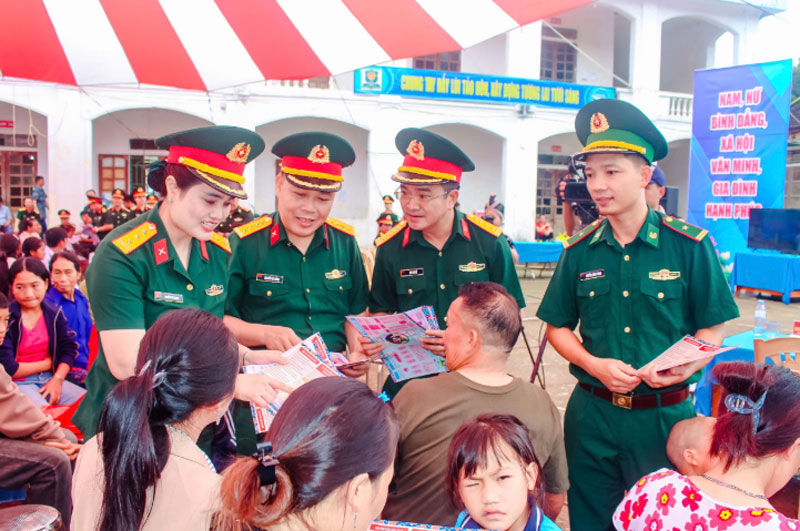 |
| Military Region 4's armed forces organized many campaigns to disseminate the law to people in the mountainous border areas of Nghe An province. Photo: HOA LE |
Na Ngoi, a mountainous commune in Nghe An, where Puxailaileng peak is covered in fog all year round. Here, people go to the fields in the morning and return to the village in the afternoon. Their lives revolve around the mountains and forests, corn and cassava, self-sufficient and lacking in all aspects. In the precarious houses on the mountainside, many women still cannot read or write. Ms. Vy Thi Oanh, President of the Women's Union of Na Ngoi commune, told us that in some villages, one out of every two women is illiterate. More worryingly, child marriage still occurs year after year. Girls in grades 7 and 8 have to drop out of school to become wives, leaving behind their old schoolbags and their dreams of going to school. Faced with that reality, the Military Women's Committee coordinated with the Political Department of Military Region 4 and Economic-Defense Group 4, and related units to organize a program to propagate and disseminate the law in Na Ngoi commune, focusing on urgent issues such as preventing and combating child marriage, incestuous marriage, and domestic violence. The program took place in a friendly atmosphere, with many lively forms such as skits, exchanges, and legal Q&A to help people understand and remember easily. Legal knowledge that seemed distant suddenly became familiar, entering every thought and every story of daily life. For the first time, women and mothers clearly heard the concept of "getting married before the age of 18 is a violation of the law", and girls were reminded of their right to study, to grow up, and to take control of their own future.
During the working trip at the Economic-Defense Group 4, we met many officers and soldiers who silently attached themselves to the highlands, contributing to changing the lives of the people. For example, Major Nguyen Cong Minh, who has been in the village for more than 15 years in Na Ngoi commune (Nghe An), is both a doctor and a relative of the people. He once delivered a baby and saved the life of a mother and child, Va Y Do, in a difficult birth in the middle of the mountains and forests. And there are many people who were treated in time that he cannot remember. Every year, he and his teammates go to the most remote villages to examine and give free medicine to hundreds of people, cross forests and wade through streams to visit the elderly and disabled. Military medical officers like him treat diseases and also cure bad customs that surround the people in the highlands, from worshiping ghosts to ward off diseases, early marriage, and illegal migration; help people with disease prevention, hygiene, and guidance on farming and raising livestock...
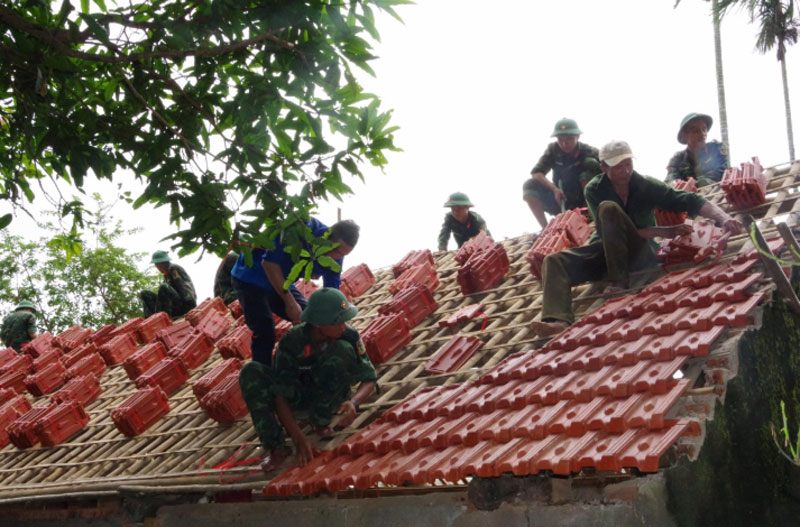 |
| Division 324 (Military Region 4) mobilized officers and soldiers to help poor families repair their houses. Photo: NGUYEN DUY |
Send love
On the journey to stay close to the villages and people in remote border areas, the soldiers make an effort to learn the ethnic language to communicate and get close to the people. Major Le Van Thiet (Deputy Captain of Production Team 1, Economic-Defense Group 4) often visits the small stilt house of the village elder Xong Ba Tu, where kitchen smoke always lingers in the air, the fragrant smell of grilled corn blends in the mountain breeze. He not only comes to visit and grasp the situation in the village but also considers it his "special class". Amidst the daily stories over a cup of rice wine, Thiet patiently listens and learns each language and form of address of the people. According to Major Le Van Thiet, learning the ethnic language is like learning a foreign language, learning both theory and daily conversation to get used to each tone and nuance, thereby understanding more deeply the thoughts, customs and practices of the people. Thanks to that perseverance, conversations with the people no longer have barriers. Policy propaganda sessions, encouraging people to gradually abandon bad customs, work hard, and educate their children, have also become lively and easy to understand. Language becomes a bridge, eliminating distances, connecting and giving trust to remote villages. "When soldiers speak their own language, people listen well and feel close to them like their own children," said village elder Xong Ba Tu.
The officers and soldiers of Military Region 4 also brought light to every village and hamlet in both the literal and figurative sense. The model of "Military-civilian power lines lighting up villages" of Division 324 and "Lighting up the countryside roads" of Division 968 installed hundreds of solar lights in remote areas, contributing to changing the face of the countryside. The Military Region's military organized 6 field trips with more than 11,000 officers, soldiers and militiamen participating in mass mobilization work, helping people build new rural areas, eliminate hunger and reduce poverty.
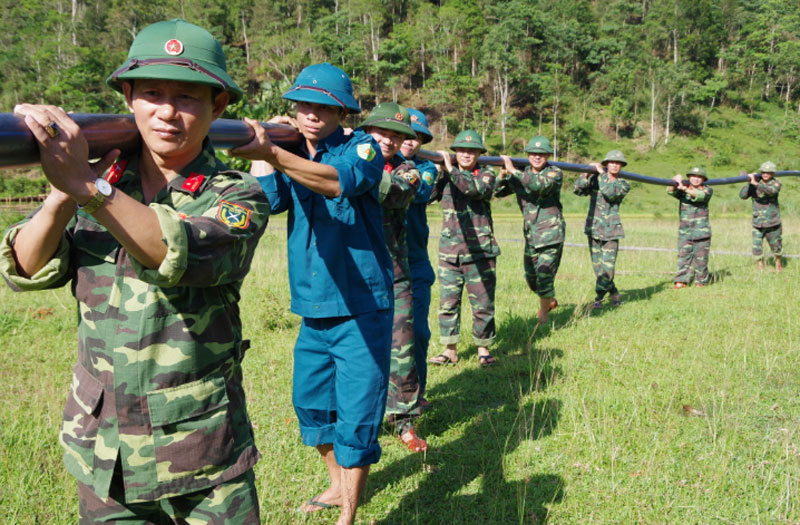 |
| Officers and soldiers of Nghe An Provincial Military Command help people of Nam Giai commune to pull clean water pipes to the village. Photo: HOANG ANH |
Over the past 5 years, the emulation movement "Skilled mass mobilization" has been deployed synchronously, comprehensively, and closely following the reality of each locality and unit in the Military Region 4. Many creative and effective models have contributed to consolidating the "people's hearts and minds" and enhancing military-civilian solidarity. The Political Department of Military Region 4 has advised on the development and implementation of Project 2036 on improving the quality and effectiveness of mass mobilization work of the Military Region 4's military in special areas in the Military Region for the period 2023-2030 and the following years. After more than two years of implementation, the entire Military Region has coordinated with localities to build more than 130 practical and meaningful "Skilled mass mobilization" models. Some typical models include: "Connecting love between Catholics and non-Catholics", "Helping people to have enough food and be self-reliant in villages" (Nghe An Provincial Military Command); "Cultural and sports area with strong military-civilian solidarity", "Clean water with military-civilian solidarity" (Thanh Hoa Provincial Military Command); “Physical education project”, “Community cultural activity area” (Ha Tinh Provincial Military Command); “Bridge of military-civilian affection” (Quang Tri Provincial Military Command); “Model military-civilian cultural village” (Economic-Defense Group 4)...
From each light bulb that lights up the village, each child that is cared for, each bad habit that is changed... All are built from the heart and responsibility to the people. It is this closeness and sincerity that creates the strength of the "people's heart position", so that the army and the people will always be closely attached, together building a new and peaceful homeland.
HOANG HOA LE
*Please visit the National Defense and Security section to see related news and articles.
Source: https://www.qdnd.vn/nuoi-duong-van-hoa-bo-doi-cu-ho/llvt-quan-khu-4-nhieu-hoat-dong-giup-dan-thiet-thuc-836614




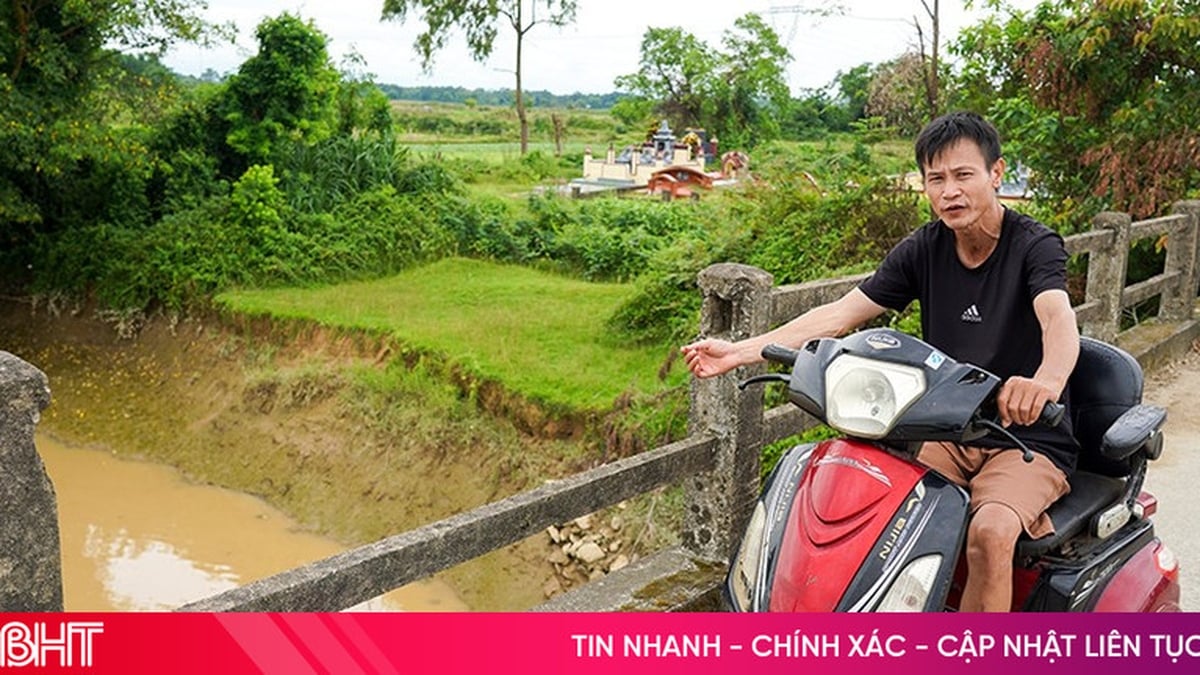
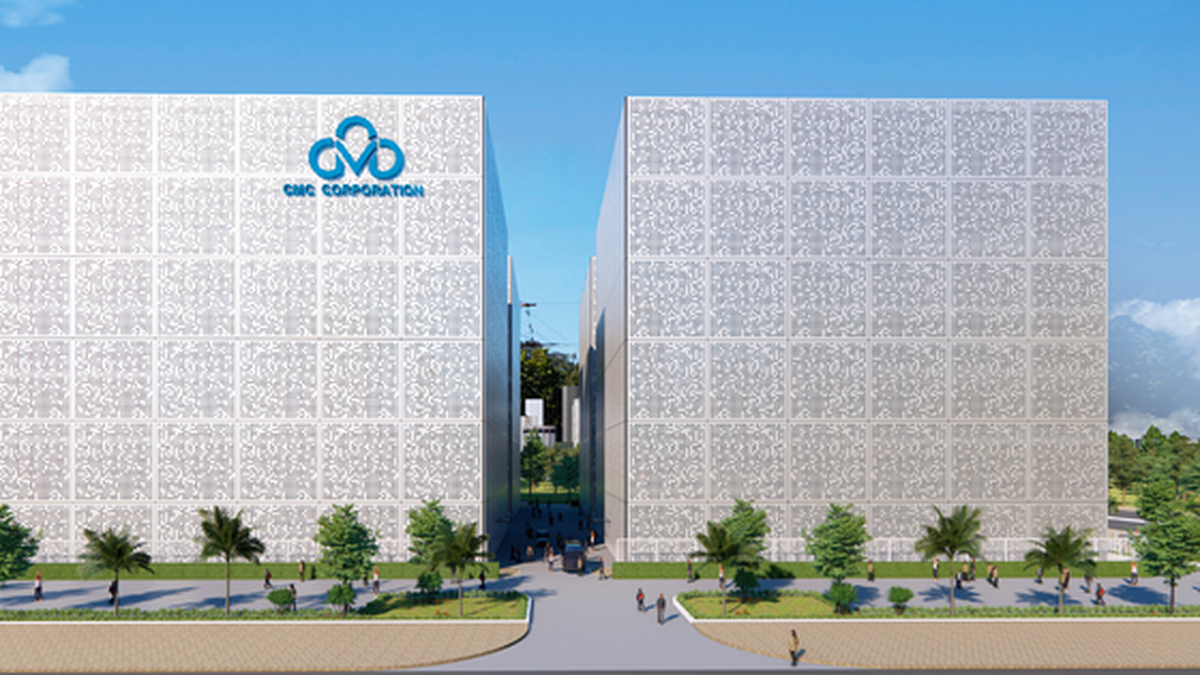
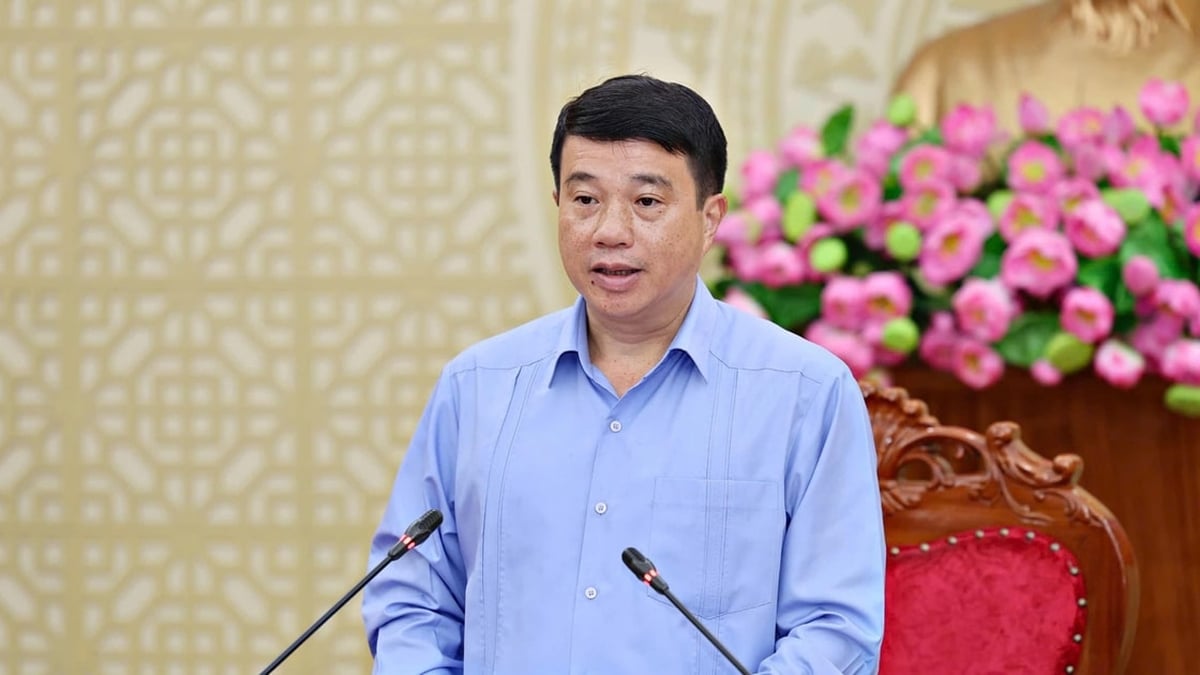
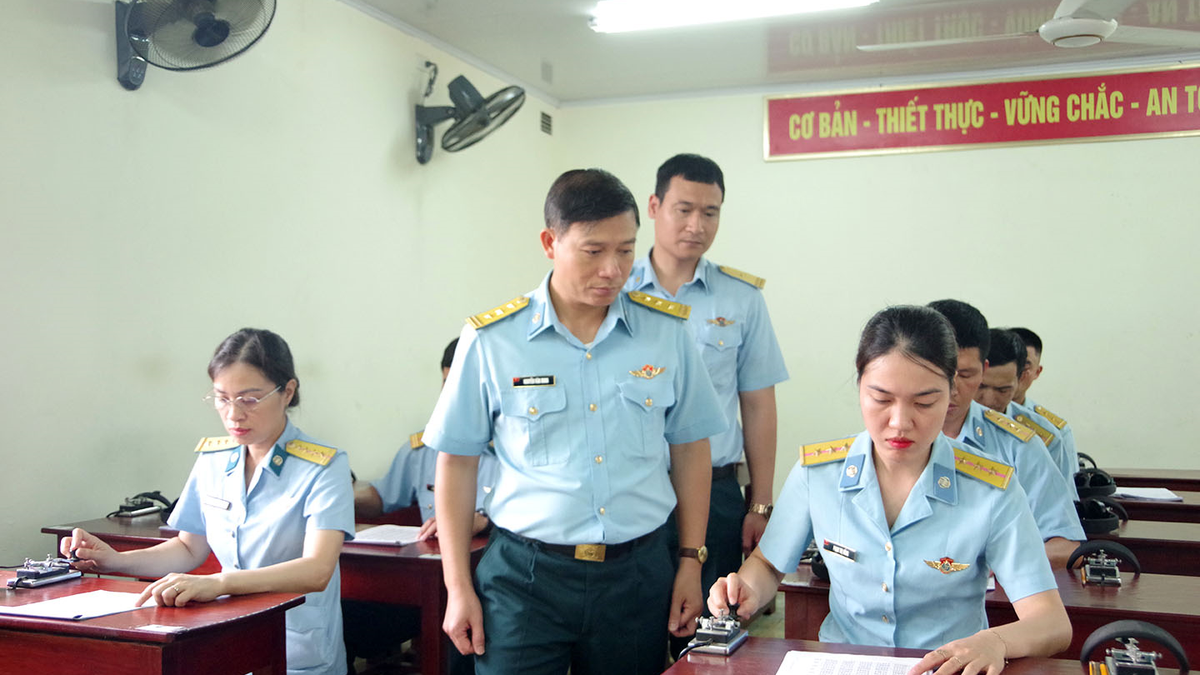

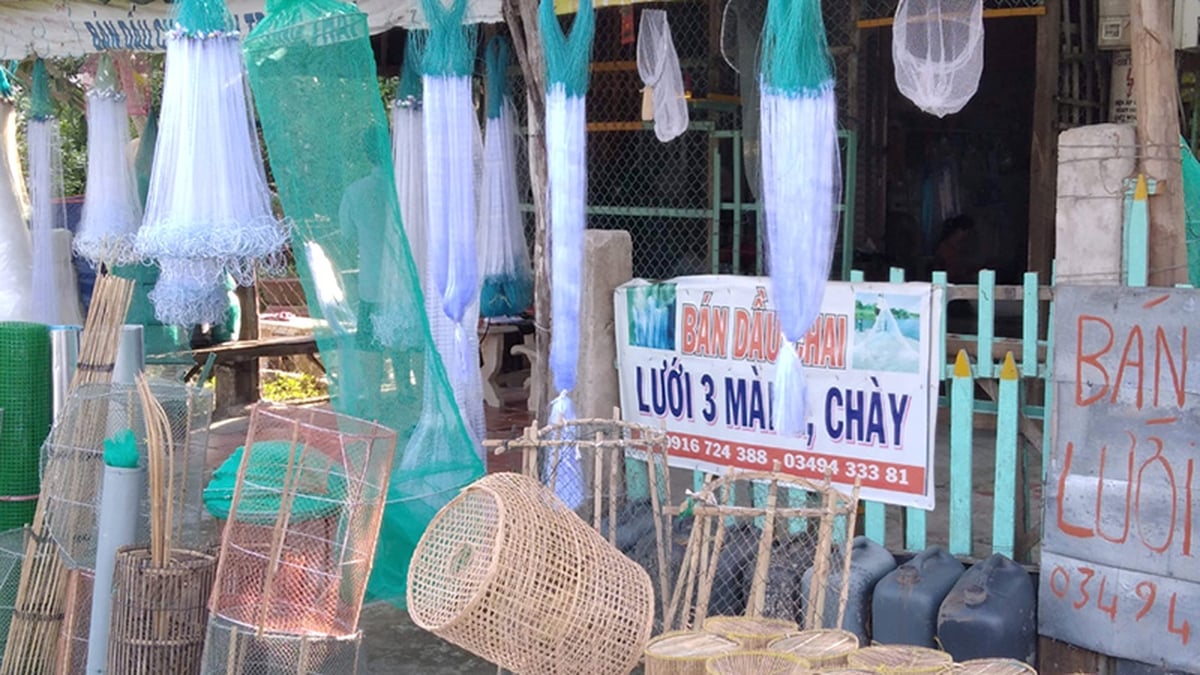
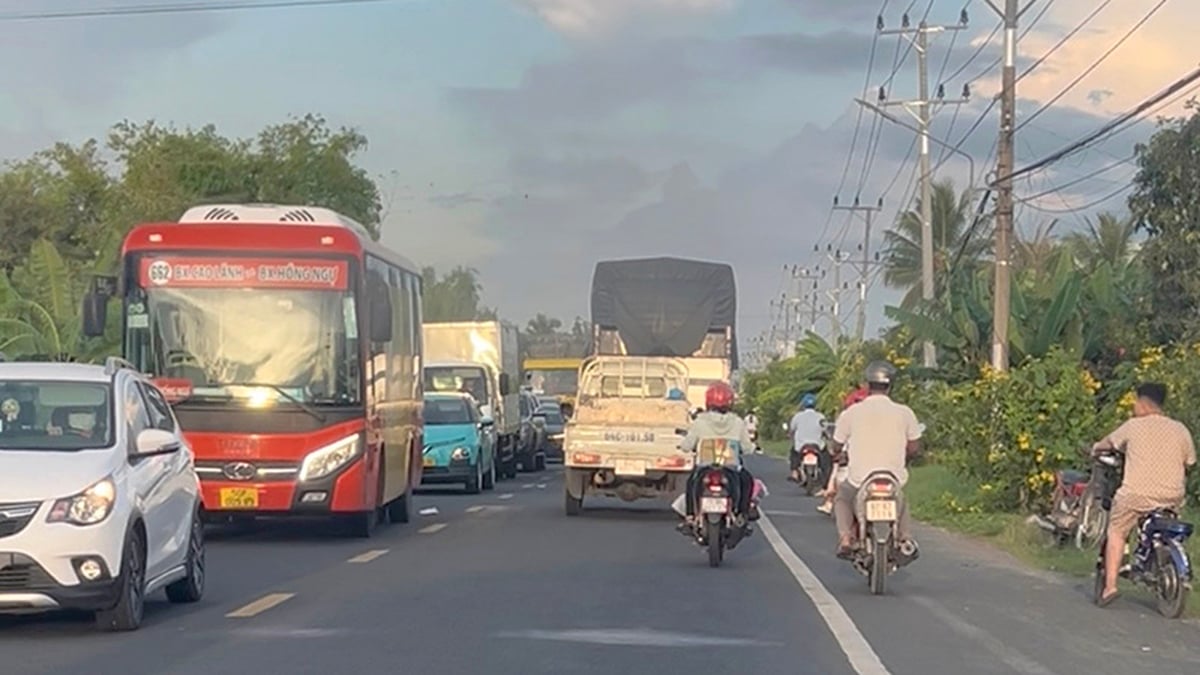










































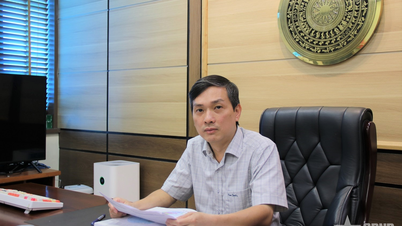








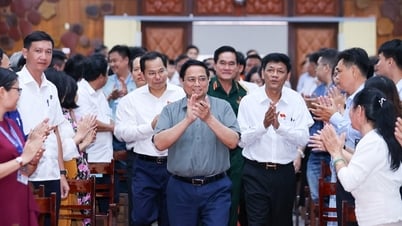


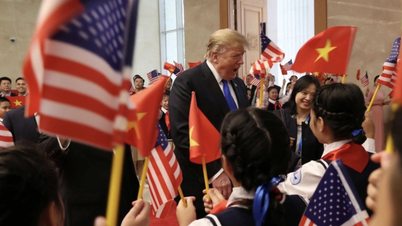
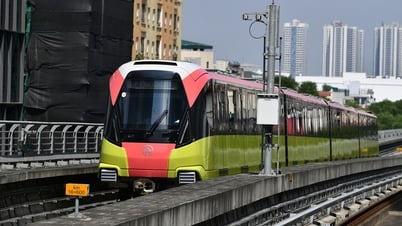
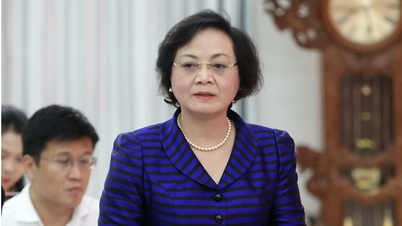

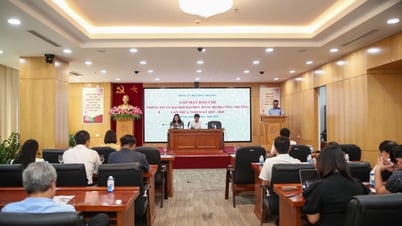

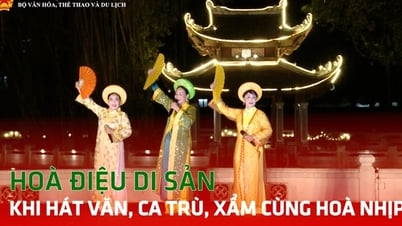
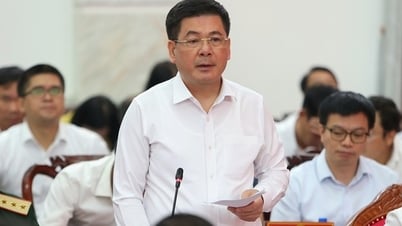
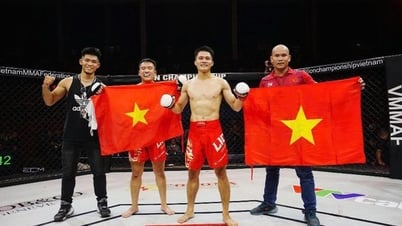
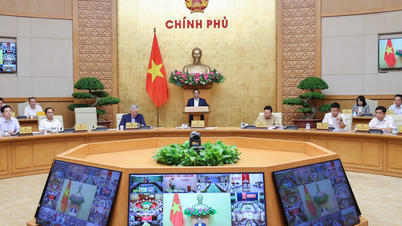

























Comment (0)